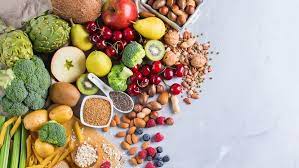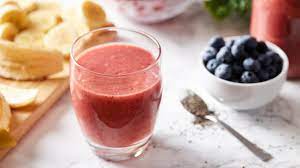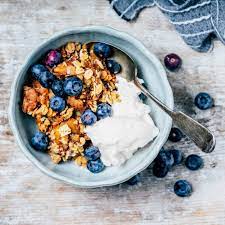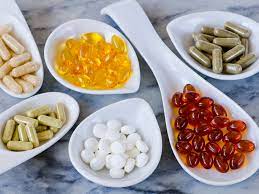Nutrition: The Secret to Reaching Your Fitness Potential
Fitness is an important part of leading a healthy and active lifestyle. Unfortunately, many people overlook the importance of nutrition when it comes to maximizing their fitness potential. By following a well-balanced nutrition plan and making smart food choices, you can reach your fitness goals more effectively and efficiently. In this blog post, we’ll explore 24/7 nutrition strategies that you can use to reach your fitness potential.
The Importance of Nutrition in Fitness

If you’re working out regularly and not seeing the results you’re hoping for, your nutrition could be the missing piece of the puzzle. Exercise is just one piece of the puzzle when it comes to achieving your fitness goals; the other piece is nutrition. The food you put into your body has a significant impact on your overall health and fitness.
Proper nutrition is essential for a variety of reasons. For one, it helps fuel your workouts, giving you the energy you need to push through even the toughest workouts. Secondly, it provides your body with the essential vitamins and minerals it needs to function at its best. And finally, proper nutrition can help speed up the recovery process after a tough workout.
When it comes to nutrition, it’s important to remember that there’s no one-size-fits-all approach. Everyone’s nutritional needs will differ depending on their fitness goals, body type, and personal preferences. However, there are a few key principles that everyone should keep in mind.
First, focus on eating a balanced diet that includes plenty of fruits, vegetables, whole grains, lean protein, and healthy fats. These foods will provide your body with the nutrients it needs to perform at its best.
Next, pay attention to your macronutrient intake. Macronutrients are the nutrients your body needs in large quantities, including carbohydrates, protein, and fat. The ratio of these macronutrients will depend on your fitness goals, but most people should aim for a diet that’s balanced in all three macronutrients.
Lastly, don’t forget about micronutrients. Micronutrients are the vitamins and minerals your body needs in smaller quantities, but they’re still important for optimal health and performance. Make sure to include a variety of fruits, vegetables, and other nutrient-dense foods in your diet to ensure you’re getting all the micronutrients your body needs.
In summary, proper nutrition is essential for anyone looking to reach their fitness goals. By focusing on a balanced diet that includes all the essential macronutrients and micronutrients, you’ll be giving your body the fuel it needs to perform at its best.
Macronutrients and Their Role in Your Diet

When it comes to reaching your fitness potential, nutrition plays a crucial role. And within nutrition, macronutrients are the building blocks that make up your diet. These are the nutrients that provide your body with energy, fuel your workouts, and help build and repair muscle.
So, what are macronutrients? Simply put, they are protein, carbohydrates, and fat. Each macronutrient has a unique role in your body, and understanding how they work together can help you create a balanced and effective diet for your fitness goals.
Protein is essential for building and repairing muscle tissue. It’s also important for maintaining a healthy immune system and supporting other bodily functions. Foods like meat, fish, eggs, and beans are all excellent sources of protein.
Carbohydrates provide your body with energy, making them a crucial component of any workout regimen. They’re also important for brain function and maintaining healthy blood sugar levels. Fruits, vegetables, whole grains, and legumes are all good sources of carbohydrates.
Fat is often misunderstood as being unhealthy, but it’s actually a necessary part of a healthy diet. Fats help your body absorb certain vitamins and minerals, and they’re important for brain function and hormone production. Good sources of healthy fats include avocados, nuts, seeds, and fatty fish.
Balancing these three macronutrients is key to creating a healthy diet that supports your fitness goals. Depending on your specific needs and preferences, you may choose to focus more on protein for muscle building, or carbohydrates for energy. Whatever your approach, make sure to incorporate all three macronutrients into your diet in a balanced and thoughtful way.
In summary, macronutrients are the foundation of a healthy diet that supports your fitness goals. Understanding their role in your body and balancing them appropriately is key to reaching your full potential. So, next time you sit down to plan your meals, make sure to give some thought to the protein, carbohydrates, and fats you’re consuming. Your body will thank you!
Micronutrients: Why They Matter for Fitness

While macronutrients may get all the attention, it’s important not to overlook the role that micronutrients play in your fitness success. Micronutrients are essential vitamins and minerals that your body needs in small amounts to function properly. They’re not a source of energy like carbohydrates, protein, and fat, but they’re just as important for maintaining your overall health and well-being.
When it comes to fitness, micronutrients are particularly important because they help support your body during exercise. For example, iron is critical for delivering oxygen to your muscles, while magnesium is important for energy metabolism and muscle function. Zinc plays a key role in protein synthesis and immune function, while calcium is essential for bone health and muscle contractions.
One of the easiest ways to ensure you’re getting enough micronutrients is to eat a variety of colorful fruits and vegetables. Each color provides a different set of micronutrients, so try to include as many different colors as possible in your diet. Leafy greens, for example, are a good source of iron, while citrus fruits are high in vitamin C, which is important for immune function.
Another way to make sure you’re getting enough micronutrients is to take a multivitamin supplement. While a balanced diet should provide most of the micronutrients you need, taking a multivitamin can help fill in any gaps in your diet. Just be sure to choose a high-quality supplement that contains a wide range of vitamins and minerals.
Ultimately, if you want to reach your full fitness potential, you can’t ignore the importance of micronutrients. While they may be small, they play a big role in keeping your body healthy and functioning at its best. So be sure to include plenty of colorful fruits and vegetables in your diet, and consider taking a multivitamin to make sure you’re getting all the essential micronutrients your body needs.
Meal Planning: A Guide to Creating a Healthy Eating Plan

When it comes to reaching your fitness potential, nutrition plays a critical role. What you eat not only affects your energy levels, but also your ability to build and maintain muscle, recover from workouts, and improve your overall health. That’s why meal planning is so important for anyone looking to achieve their fitness goals.
Creating a healthy eating plan starts with understanding your individual needs. This includes your age, gender, activity level, and any specific health conditions you may have. From there, you can determine your daily calorie needs and start to break down your diet into macronutrients.
Macronutrients are the three primary nutrients your body needs in large amounts: carbohydrates, protein, and fat. Carbs are your body’s main source of energy, while protein helps repair and build muscle tissue. Fat is important for hormone production, cell function, and brain health.
To create a healthy meal plan, you should aim to consume a balance of these macronutrients in each meal. This might include filling half your plate with veggies, a quarter with lean protein, and a quarter with whole grains or healthy fats. You can also experiment with different recipes and meal prep techniques to make sure you have healthy options available throughout the week.
In addition to macronutrients, it’s important to pay attention to micronutrients – the vitamins and minerals your body needs in smaller amounts. These include things like iron, calcium, vitamin D, and magnesium, which are important for bone health, immune function, and overall well-being.
One way to ensure you’re getting all the micronutrients you need is to eat a variety of colorful fruits and vegetables. You can also consider taking a daily multivitamin or incorporating specific supplements into your routine based on your individual needs.
When it comes to meal planning, it’s important to be flexible and realistic. Everyone has different schedules, tastes, and nutritional needs, so find a system that works for you. You might start by planning out your meals for the week on Sundays, or by batch cooking on the weekends to make meals easier during the week.
With a little bit of planning and preparation, you can make sure that your nutrition supports your fitness goals and helps you reach your full potential. Remember, what you eat is just as important as how you train, so take the time to invest in your health and wellbeing.
Snacking Strategies: Tips for Fueling Your Workouts

When it comes to fueling your workouts, it’s not just about what you eat at mealtime. Snacking strategically can help provide the energy you need to power through your workouts and make the most of your fitness routine. Here are some tips for healthy snacking:
- Plan ahead: Keep healthy snacks on hand so you’re not tempted to reach for something sugary or high in fat. Some good options include fruit, nuts, and low-fat yogurt.
- Time your snack right: Eating too close to your workout can cause discomfort, so aim to have a snack about 30 minutes to an hour before your workout. This will give your body enough time to digest the food.
- Opt for carbs and protein: Carbohydrates provide your body with the energy it needs to power through your workout, while protein helps build and repair muscle tissue. Some good options include a banana with peanut butter, a hard-boiled egg, or a protein bar.
- Stay hydrated: Don’t forget to drink water before and after your snack. This will help keep you hydrated and prevent muscle cramps.
- Don’t overdo it: Remember that snacking is meant to provide energy, not replace a meal. Keep your snack size small and balanced.
By following these snacking strategies, you can help ensure that you have the energy you need to power through your workouts and reach your fitness goals.
Hydration: The Key to Optimal Performance

When it comes to achieving your fitness goals, it’s easy to focus on your workouts and nutrition plan. But one critical aspect that many people overlook is hydration. Proper hydration is essential for optimal performance during exercise and can help prevent dehydration, cramping, and fatigue.
So how much water should you be drinking? The general rule of thumb is to drink at least eight cups of water per day. However, this can vary based on factors such as your weight, activity level, and climate. A good way to determine your ideal water intake is to take your body weight in pounds and divide it in half. That number represents the minimum number of ounces of water you should aim to drink each day.
But water isn’t the only source of hydration. Fruits, vegetables, and even coffee and tea can contribute to your daily fluid intake. However, it’s important to note that alcohol can have the opposite effect and dehydrate you. It’s best to limit your alcohol consumption and balance it out with plenty of water.
Timing your water intake is also crucial for optimal performance. Aim to drink water throughout the day and especially before, during, and after your workouts. A good pre-workout strategy is to drink at least 16 ounces of water two hours before exercise, and then another 8-16 ounces 15-30 minutes before. During your workout, aim to drink at least 4-8 ounces every 15 minutes. And after your workout, replenish with at least 16-24 ounces of water.
Remember, proper hydration is not just about drinking water but also about balancing your electrolytes. Electrolytes, such as sodium, potassium, and magnesium, are minerals that help regulate your body’s fluid balance and muscle function. Consider incorporating electrolyte-rich foods and drinks, such as coconut water or sports drinks, into your hydration plan.
Pre and Post-Workout Nutrition: What to Eat and When

When it comes to fueling your workouts, what you eat before and after can make a significant difference in your performance and recovery. The right combination of nutrients can help you power through a tough workout and minimize muscle soreness afterward. Here’s what you need to know about pre and post-workout nutrition:
What to Eat Before a Workout:
Before a workout, it’s important to fuel up with the right nutrients to give your body the energy it needs to perform at its best. A balanced meal or snack that includes protein, complex carbohydrates, and healthy fats can help you power through a tough workout.
Some good pre-workout snack options include a protein smoothie with fruit, a slice of whole-grain toast with avocado and turkey, or a small serving of Greek yogurt with berries and nuts. Aim to eat your pre-workout meal or snack 30 minutes to an hour before your workout to allow enough time for digestion.
What to Eat After a Workout:
After a workout, your body needs nutrients to help repair and rebuild muscles, replenish energy stores, and reduce inflammation. A combination of protein and carbohydrates can help with recovery, while also restoring glycogen levels.
Some good post-workout meal or snack options include a protein shake with fruit, a grilled chicken salad with quinoa, or a whole-grain wrap with turkey, avocado, and veggies. Aim to eat your post-workout meal or snack within 30 minutes to an hour after your workout to take advantage of the window of opportunity for optimal recovery.
Remember, every person’s nutritional needs are unique, so experiment with different pre and post-workout foods and meal timings to find what works best for you. With the right nutrition plan in place, you’ll be well on your way to reaching your fitness goals.
Supplements: Do They Have a Place in Your Diet?

When it comes to nutrition and fitness, supplements are a topic of much debate. Some argue that they’re necessary for optimal performance and results, while others say they’re a waste of money. So, what’s the truth?
First, it’s important to note that supplements should never replace a healthy, balanced diet. They’re called supplements for a reason – they’re meant to complement, not replace, your food intake. However, if you’re already eating well and looking for an extra boost, supplements can be beneficial.
Protein powders are perhaps the most common supplement used by fitness enthusiasts. They’re convenient and provide a quick and easy source of protein, which is essential for building and repairing muscle tissue. However, it’s important to choose a high-quality protein powder that’s low in added sugars and artificial ingredients.
Creatine is another popular supplement among athletes and bodybuilders. It’s been shown to increase muscle strength and power, as well as improve endurance. However, it’s important to note that creatine is not suitable for everyone, and should only be used under the guidance of a healthcare professional.
Other supplements that may have a place in your diet include omega-3 fatty acids, which have been shown to improve cardiovascular health and reduce inflammation, and caffeine, which can enhance exercise performance.
It’s important to remember that supplements are not a magic bullet. They can’t make up for a poor diet or lack of exercise. If you’re considering adding supplements to your routine, do your research and speak with a healthcare professional or registered dietitian to ensure they’re safe and effective for you.
